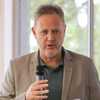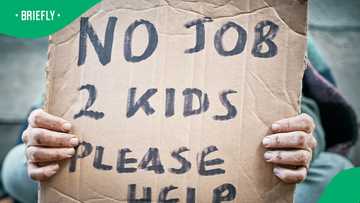Exclusive: Wits University Economist Dr Kenneth Creamer Expresses Hope About the Unemployment Rate
- StatisticsSA released the latest unemployment figures, which showed that the rate went up from 32.9% to 33.5%
- Speaking to Briefly News, Wits University economist Dr Kenneth Creamer said the figures reversed a trend in which more people were getting jobs
- Despite the increase in the unemployed, Dr Creamer added that it is hoped that the employment rate will increase in the coming months
PAY ATTENTION: Let yourself be inspired by real people who go beyond the ordinary! Subscribe and watch our new shows on Briefly TV Life now!
Tebogo Mokwena, Briefly News's current affairs journalist, covered current affairs relating to the economy, finance, banks, and state-owned enterprises during his seven years at Daily Sun and Vutivi Business News.

Source: Getty Images
JOHANNESBURG—Dr Kenneth Creamer, an economist at Wits University, told Briefly News that the number of unemployed can be decreased, and there is hope that this will be possible.
Dr Kenneth Creamer comments on unemployment statistics
Speaking to Briefly News, Dr Creamer commented on the statistics StatsSA recently published. The statistics revealed that the unemployment rate increased from 32.9% to 33.5% in the second quarter of 2024. These figures, Dr Creamer said, are concerning.
PAY ATTENTION: stay informed and follow us on Google News!
"South Africa’s rising rate of unemployment in the second quarter of 2024 is very concerning. A major problem is that the number of people in employment across the country decreased by 92,000 to around 16,7 million people in 2024's Q2. This reverses a trend where the number of people in employment has been rising in recent years, even as the flow of new entrants into the labour market has generally been rising more quickly," he said.
There is hope
However, there is hope that more jobs can be created.
"It is hoped that the number of people in employment will rise in the months ahead, given the boost to business confidence linked to the fact that loadshedding has been held off for a number of months and that South Africa conducted peaceful elections in May 2024," he added.
How can unemployment be curbed?
When asked how unemployment can be tackled, Dr Creamer suggested various approaches the country could implement. This would require different measures the government could explore.
"The only way decisively to reduce the rate of unemployment is for South Africa to have a sustained period of accelerated economic growth," he said.
"This will require supportive government policies to increase the international competitiveness of the South African economy, such as access to reliable, lower-carbon sources of energy, improved rail, road and port logistics, increased levels of security, and the right kind of education and training for young people as well as older participants in the labour market."
Youth unemployment increased in 2023
In a similar article, Briefly News reported that unemployment among the youth increased in 2023.
16,2 million young people were unemployed, and South Africans were concerned that more younger people were jobless.
PAY ATTENTION: Follow Briefly News on Twitter and never miss the hottest topics! Find us at @brieflyza!
Source: Briefly News

Tebogo Mokwena (Current Affairs editor) Tebogo Mokwena is the Deputy Head of the Current Affairs desk and a current affairs writer at Briefly News. With a Diploma in Journalism from ALISON, he has a strong background in digital journalism, having completed training with the Google News Initiative. He began his career as a journalist at Daily Sun, where he worked for four years before becoming a sub-editor and journalist at Capricorn Post. He then joined Vutivi Business News in 2020 before moving to Briefly News in 2023.

Dr Kenneth Creamer (Senior Lecturer School of Economics and Finance at Wits University) Dr Kenneth Creamer is a senior lecturer at Wits University's School of Economics and Finance. He has published academic and policy-related articles on economic policy, international economics, macroeconomics, and the energy transition.


